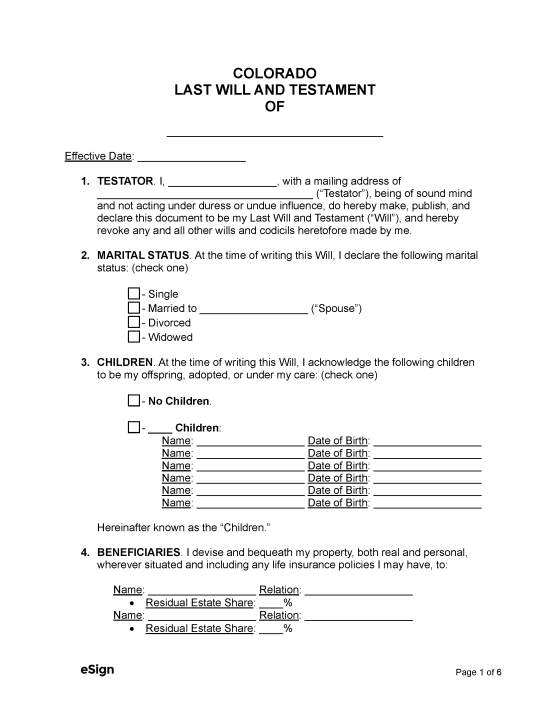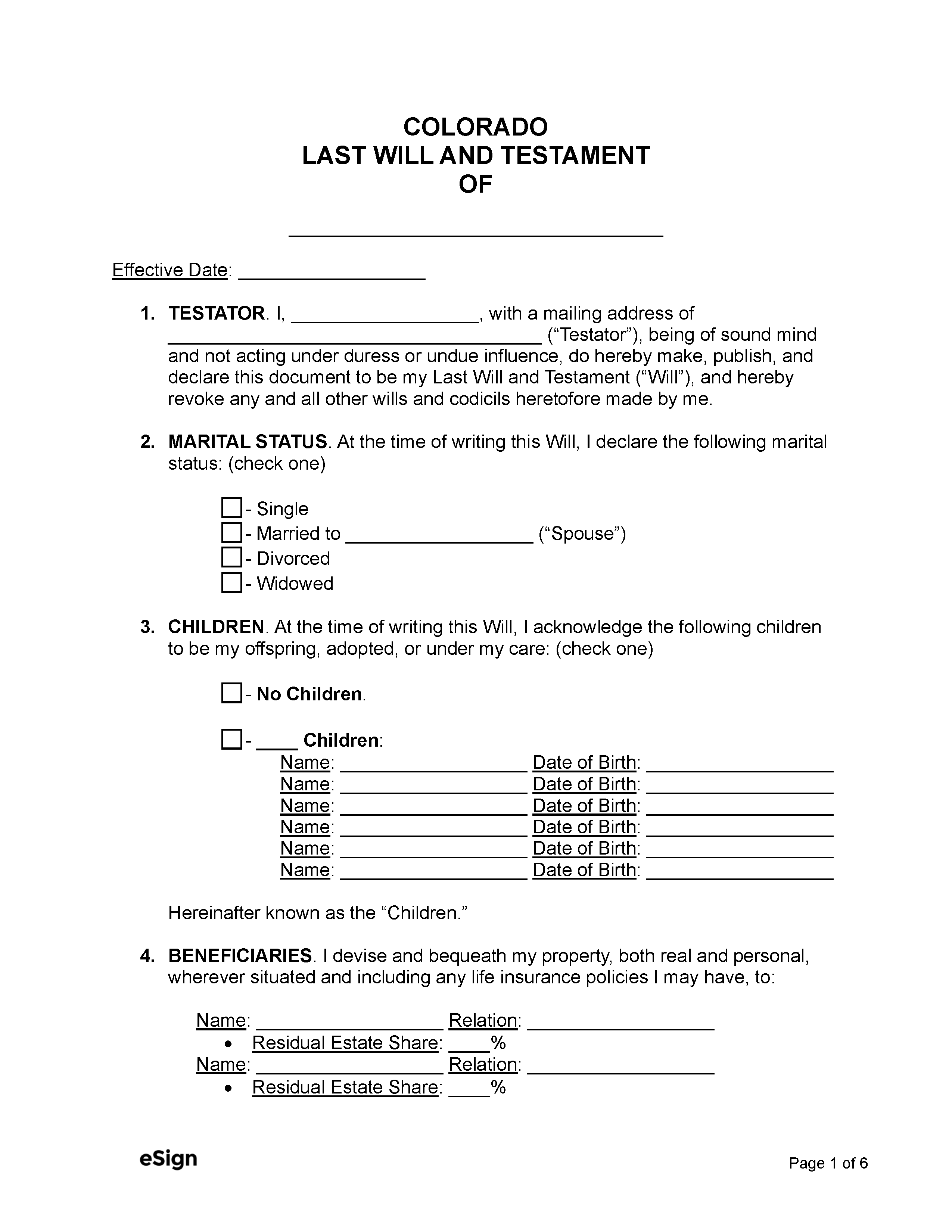State Laws
- Minimum Age – 18[1]
- Signing Requirements – Two witnesses OR notary acknowledgment.[2]
- How to Revoke – By executing a new will, by written cancellation, or by destroying the will.[3]
Probate in Colorado
In Colorado, the probate of a will must begin before three years have passed from the date of the decedent’s death in the district court for the county where they resided (Denver Probate Court if a Denver resident).
Informal vs. Formal Probate
There are two types of probate in Colorado, informal and formal. Informal probate is the most common.
Application for Informal Probate of Will
If the will is uncontested, the successor can apply for an informal probate, which is a simpler and less lengthy process than the formal option. Using this option, there will be no court hearing or published notice.
Petition for Formal Probate of Will
Formal probate is only necessary if there are disagreements regarding the distribution of the decedent’s estate, if the original will can’t be located, or only a copy is available.
Small Estates
If the decedent’s estate is valued at $82,000 or less, the estate may be eligible to bypass probate.[4] To qualify, there must also be no granted or pending appointment of a personal representative for the will’s probate.
A successor must complete the Collection of Personal Property by Affidavit at least 10 days after the decedent’s death, have it notarized, and attach a copy of the decedent’s death certificate before using the affidavit to collect the decedent’s property.

